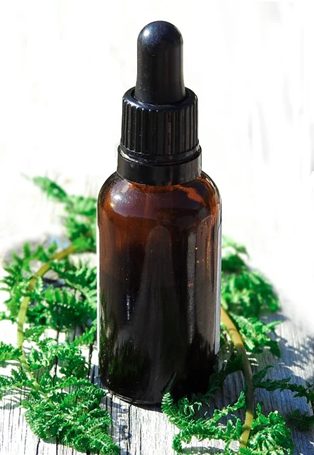What Are Terpenes, and How Do You Use Them?
/(images from pixabay)
The oil-like substances that naturally occur in plants are known as terpenes. When these compounds are chemically altered through processes like drying or curing, they are referred to as terpenoids. Terpenes are counted among the most prominent compounds that make up a significant component of essential oils in plants. An essential constituent of natural hydrocarbons found in hemp plants, terpenes are responsible for creating the scents associated with different strains of cannabis. They also work to attract pollinators and repel pests. Located in the buds and flowers of cannabis plants, cannabis terpenes provide one of the richest sources of terpenes in the plant kingdom.
What should you know about terpenes?
One thing that most people are unaware of is that terpenes are an important part of full-spectrum and broad-spectrum CBD compositions. Some terpenes found in CBD oil are the following:
Linalool (this compound is used as a scent in up to 80% of cleaning and perfumed hygiene products)
Myrcene (a popular additive used in the manufacture of food and beverages)
Alpha-humulene (which has anti-inflammatory properties that make it ideal for use in topical balms and salves to treat pain and inflammation)
Beta-caryophyllene (found in various herbs and spices like rosemary and black pepper, it also has anti-inflammatory, antimicrobial, antibacterial, and antioxidant properties that make it ideal for treating a number of ailments, including high cholesterol, osteoporosis, and seizures)
As a compound in aromatic oils, terpene is composed of aromatic rings (also known as aromatic compounds or arenes), which make them unusually stable in comparison to non-aromatic compounds. This chemical characteristic of terpene oil gives certain cannabinoids their distinctive cannabis-like aroma.
Know This Before Purchasing a Bottle of Terpene Oil
Like CBD and Delta-10 THC products, there are several points to consider before buying terpene oil. Every product comes with specific directions and instructions. Be a savvy consumer and understand more about your product. Some points that you should ponder over include the following:
Does your state allow you to possess a terpene product?
What specific reason are you purchasing it for? Are you using it for aromatherapy, cooking, or as a topical salve?
Confirm whether the product is third-party laboratory tested. Like other cannabis products, the quality of terpene oils varies widely.
Read through the ingredient list: does it contain toxic chemicals like benzene (a known carcinogen)?
Inquire about the product’s extraction process. There are 2 main methods of extraction, using carbon dioxide (CO2) or steam distillation (hydrosols). Each method has a different effect on the final composition of the terpene oil.
Keep manufacturing and expiry dates in check so that you aren’t buying a product whose quality has deteriorated.
What is so special about terpenes?
We know cannabinoids hold an important place among plant-based remedies in delivering medicinal benefits. The same goes for terpenes. They possess several medical effects that make them a preferred organic product for many consumers of natural or botanical therapies. Terpenes play a vital role in interacting with and mediating natural procedures in an organism. It is why they contribute to the overall success of cannabinoids.
Now that you know a little more about terpenes, you may be curious about what are they used for. Some of their most common uses include the following:
High blood pressure
Diarrhea
Diabetes
Inflammation
Appetite management
Pain relief
How do you use terpenes?
Terpenes are more like by-products in the extraction of cannabinoids. Various flavonoids, essential oils, and terpenes, along with varying traces of other cannabinoids, are extracted in the process of obtaining full-spectrum cannabidiol.
Using terpenes may sound a bit confusing but, they are easy to consume, just like other essential oils. Using them is not as burdensome as some individuals perceive. A little knowledge and basic science are helpful tools in understanding how you can use terpenes. Some of the most common uses are noted below:
Vaping
Terpenes are devoid of any traces of cannabinoids and nicotine. They are pure oil substances that have the potential to release your tension and discomfort. Individuals can effortlessly consume it through vaporizer pens. However, its pure form should not be used without an e-liquid base.
Mixing in food
Terpenes come in dropper bottles that make them convenient for adding to food or drinks. To drive its medicinal benefits, add a few drops of terpene oil to your food. Manufacturing companies sell flavored strains to resemble the natural taste of cannabis-hemp products. Nevertheless, if you do not prefer the grass-like aftertaste of these products, it is recommended that you consume them with food.
Infusing in skincare products
Terpenes have impressive anti-inflammatory properties that make them suitable for sensitive skin. To use terpene oil topically, you can mix it with your lotions, creams, or even balms. It is effective in all of these products. It’s important, however, to be careful while applying it superficially. Non-diluted forms of terpene oil should be avoided to prevent any harsh side effects. As a precaution, follow the instructions on the packaging before using it.
Aromatherapy
From candles to essential oils, fragrances have the potential to rejuvenate and calm your consciousness. Likewise, terpene oil can be used for aromatherapy. You can buy this oil from a CBD brand and use it with a diffuser. A comfortable space and an aroma of your choice can provide a relaxing environment.
What are the benefits of using terpene oil?
It is entirely according to your preference whether you should opt for either full-spectrum CBD oil containing all necessary terpenes, or for pure terpene oils. Cannabidiol products carry different profiles of hemp-derived terpenes. However, one may also choose a product according to its quality.
While the products may vary, terpenes do not cause you to experience a high in their isolated state. For medicinal purposes, they are sourced from the Cannabis sativa plant. This compound in its typical standard form may offer loads of benefits, including anti-cancer, anti-inflammatory, antiviral, antiseptic, and analgesic ones. The list of benefits to be gained from using terpene oil may further increase if scientists succeed in discovering more information about cannabinoids and their possible positive traits.
Are they fit for consumption?
As a physical characteristic, the scent of terpene oils is strong. The fumes can be so overpowering to some individuals that they may result in irritation and headache. Although there are no known life-threatening effects of using terpenes, one should not act carelessly while consuming them. Instead, be sure to buy terpenes that you intend to consume in food only from a reputable brand that sells it as a food-grade product.
like this? Please pin!
Conclusion
Terpenes are an extended product of the already established cannabinoid industry. They are an easy-to-use natural compound. They may produce therapeutic and curative properties to ease bodily discomforts and ailments. Nevertheless, it’s important to find out as much as you can before purchasing and using terpene oil. Insufficient data on anything – including natural products -- can put your health at risk. Research and investigate the usage and possible advantages of terpene oils: nowadays there is ample reliable, scientifically-researched information available to consumers. Using this product can change the course of treatment for people around the world, but only when such treatment is based on well-established facts.
About the Author:
Michele Lowe is a proficient content writer with comprehensive experience of 10+ years in the CBD vertical market. She is known for her writings in the Cannabidiol industry. She has covered almost all the aspects of Cannabis, CBD, and related matters. Holding a master’s degree in journalism from Boston University, she has always been passionate about writing and gradually moved towards CBD because of its many benefits and uses.










































Mention marijuana, and many people will instantly think about its psychoactive effects. However, this plant delivers plenty of benefits beyond getting you high. Enter the world of CBD or Cannabidiol. It’s one of the many chemical compounds you’ll find in cannabis, often responsible for the plant’s health benefits. Over the years, it gained a reputation as a holistic treatment for several conditions, including anxiety and stress.